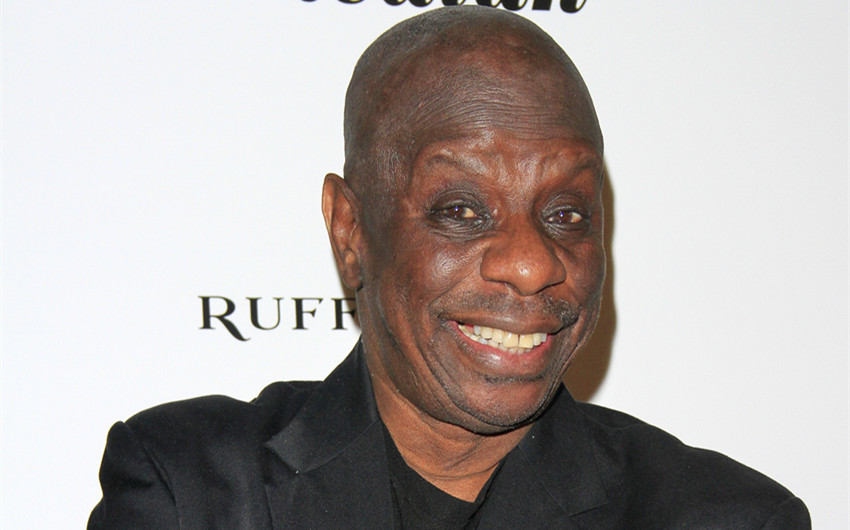Jimmie Walker’s Net Worth and His Lasting Legacy in Entertainment
What is Jimmie Walker’s net worth, and how did a catchphrase from a 1970s sitcom help launch one of the most memorable entertainment careers of the past half-century? Best known for playing J.J. Evans on Good Times, Jimmie Walker became a household name thanks to his unforgettable comedic timing and the legendary line “Dy-no-mite!” But while many actors from that era faded into obscurity, Walker managed to stay active across multiple platforms—stand-up comedy, television guest spots, talk shows, and books. His journey through show business wasn’t always easy, and his financial path wasn’t filled with modern-day sitcom millions. Still, Walker has carved out a long-lasting legacy built on hustle, humor, and staying true to his comedic roots.
Who Is Jimmie Walker?
Jimmie Walker was born on June 25, 1947, in The Bronx, New York. Raised in a low-income neighborhood during a time of tremendous social and political change, Walker’s early life was anything but glamorous. He attended Theodore Roosevelt High School and later studied communications, eventually working as a radio engineer for the New York City-owned station WRVR.
Before television fame found him, Walker was already making waves in the comedy world. In the late 1960s, he began performing stand-up routines in small clubs around New York. His sharp wit, high energy, and unique stage presence caught the attention of major comedy bookers, and by the early 1970s, he was opening for big-name musicians and appearing on variety shows. It was during this era that producers of Good Times, a spin-off of the popular show Maude, cast him as James Evans Jr.—better known as J.J.
From 1974 to 1979, Good Times aired on CBS and became a cultural phenomenon. The sitcom centered on a working-class African-American family living in a Chicago housing project. While the show addressed serious issues like poverty, racism, and family struggles, Walker’s character brought comedic relief that resonated with viewers. His exaggerated expressions, lanky physicality, and signature line “Dy-no-mite!” turned J.J. Evans into a breakout star.
Walker’s portrayal made him instantly recognizable, and he became one of the most popular television personalities of the decade. But his success also came with challenges, including tension with co-stars and producers over the comedic direction of the show. Despite the internal conflict, Walker’s impact on pop culture was undeniable, and the role helped launch a career that would continue long after the credits rolled on Good Times.
Jimmie Walker’s Net Worth: Estimated at $800,000–$1.5 Million
As of recent estimates, Jimmie Walker’s net worth is believed to fall between $800,000 and $1.5 million. While this may seem modest compared to today’s television stars, it’s important to understand the historical context. Sitcom actors in the 1970s did not earn the massive salaries or back-end syndication deals that later generations would negotiate. In fact, Walker has publicly spoken about how he earned around $5,000 per episode at the peak of Good Times, with no residuals from the show’s syndication.
Despite that, Walker maintained a frugal lifestyle and continued working steadily for decades. His ability to stay relevant and in-demand across multiple eras of entertainment helped him build a modest but stable financial foundation. His net worth today reflects the accumulation of income from various sources: acting, touring, public speaking, writing, and ongoing media appearances.
Earnings from Good Times and Television Work
Although Good Times brought Jimmie Walker fame, it didn’t make him wealthy by modern standards. At the time, network sitcoms often paid far less than current rates, especially for actors who didn’t own part of the show or negotiate backend royalties. Walker’s lack of residuals from syndication—something that would be unthinkable for a star today—meant that he didn’t benefit financially from the show’s decades-long success in reruns.
Still, the exposure helped him land other roles. After Good Times, Walker appeared in various television programs including The Love Boat, Fantasy Island, Scrubs, and Everybody Hates Chris. He also took on voiceover roles and made appearances on game shows and late-night talk shows. These gigs didn’t necessarily bring massive paychecks, but they kept Walker in the public eye and provided consistent income.
In addition to traditional television, Walker participated in a number of reality and nostalgia-based programs, such as TV Land’s Top 10 and The Weakest Link. His willingness to embrace his status as a nostalgic pop culture figure helped him stay visible, even when not regularly acting in scripted television.
Stand-Up Comedy and Touring
Long before he was known as J.J., Jimmie Walker was a stand-up comic—and he never stopped performing. In fact, Walker has often credited stand-up as his first love and primary profession. Even during the height of his TV fame, he continued touring comedy clubs, theaters, and cruise ships.
Stand-up has been a reliable source of income for Walker for decades. Comics who consistently tour, even without TV headliner status, can earn a comfortable living through club dates, private gigs, and comedy festivals. For Walker, who has remained a working comedian well into his 70s, this aspect of his career has likely been one of his most dependable financial engines.
In his later years, Walker often performs in venues catering to nostalgic comedy fans and older audiences. His shows blend observational humor, reflections on pop culture, and commentary on how the entertainment industry has changed. He brings the same charisma to the stage that made J.J. Evans such a hit—only now, with decades of perspective and polish.
Books, Media Appearances, and Speaking Engagements
In 2012, Jimmie Walker released a memoir titled Dyn-o-mite!: Good Times, Bad Times, Our Times, in which he detailed his rise to fame, the behind-the-scenes drama of Good Times, and his personal reflections on Hollywood, politics, and society. The book provided fans and critics alike with a deeper look into the man behind the character.
Though the memoir wasn’t a runaway bestseller, it added to his earnings and opened new doors in media. He’s appeared on radio shows, podcasts, and talk panels to discuss his experiences as a Black entertainer during a time of cultural transition in America. These speaking opportunities also serve as a source of income and help Walker remain engaged with the entertainment community.
His candid and sometimes controversial takes on modern comedy, politics, and race have sparked both interest and criticism, but they keep him in the public conversation—a valuable position for anyone working in entertainment.







